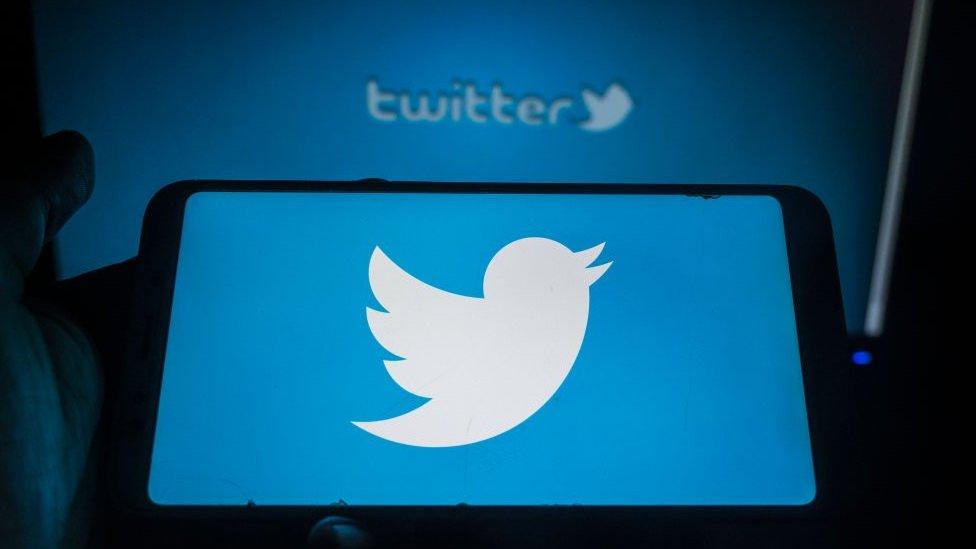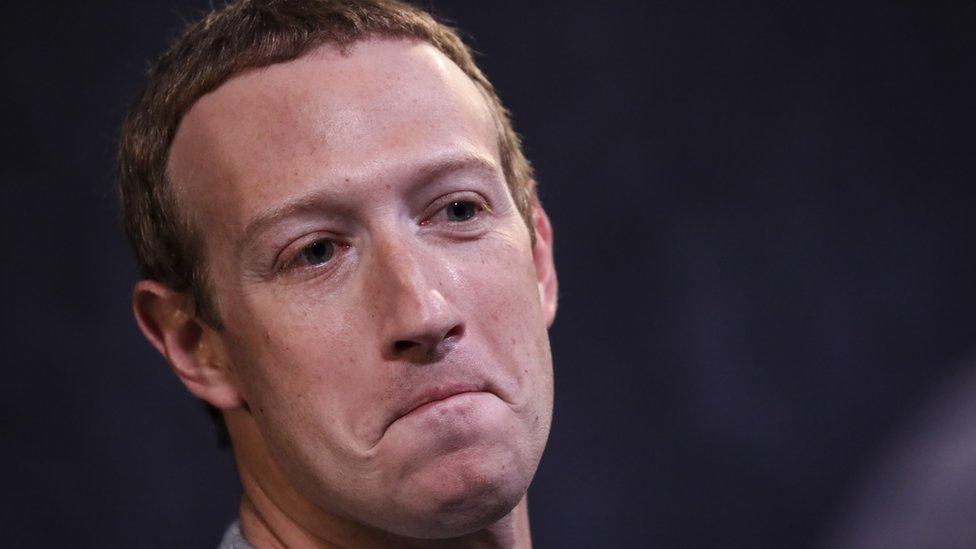George Floyd: Twitter drops 'master', 'slave' and 'blacklist'
- Published

Social media platform Twitter is dropping the terms "master", "slave" and "blacklist" in favour of more inclusive language.
The terms are frequently used in programming codes which originated decades ago.
US bank JPMorgan has also announced a similar move as more companies address racism following the killing of George Floyd by police in Minneapolis.
Replacing the terms could cost millions and take months, according to experts.
In programming speak, "master" refers to a device or process - such as a hard drive or a database - that controls other devices or processes, which are known as "slaves," or replicas. "Blacklist" is used to describe items that are automatically denied, typically forbidden websites.
On Thursday, Twitter's engineering division tweeted out a set of words that it wants "to move away from using in favour of more inclusive language". The list includes replacing "whitelist" with "allowlist" and "master/slave" with "leader/follower".
Allow X content?
This article contains content provided by X. We ask for your permission before anything is loaded, as they may be using cookies and other technologies. You may want to read X’s cookie policy, external and privacy policy, external before accepting. To view this content choose ‘accept and continue’.
Last month, Twitter founder Jack Dorsey donated $3m (£2.4m) to former NFL player Colin Kaepernick's Know Your Rights Camp to "advance the liberation and well-being" of minority communities.
JPMorgan said it is also dropping the outdated coding terms as the Black Lives Matter movement ripples through the corporate world. It said the terms had appeared in some of its technology policies and programming codes.
Last month, GitHub, the world's biggest site for software developers, said it was working on changing the term 'master' from its coding language. The firm, owned by Microsoft, is used by 50 million developers to store and update its coding projects.
Google's Chromium web browser project and Android operating system have both encouraged developers to avoid using the terms "blacklist" and "whitelist".
Global brands are also looking carefully at their product logos and names to avoid racial stereotyping. In recent weeks, a number of well-known brands have said they will be changing or reviewing their branding including Quaker Oats which is renaming its Aunt Jemima line of syrups and foods.
At the same time, social media platforms are also under pressure to tackle hate posts, with Facebook facing a widespread ad boycott from the Stop Hate for Profit campaign. Ford, Adidas, Coca Cola, Unilever and Starbucks have all added their weight to the campaign, aimed at removing hateful content on social networks.
- Published29 June 2020
